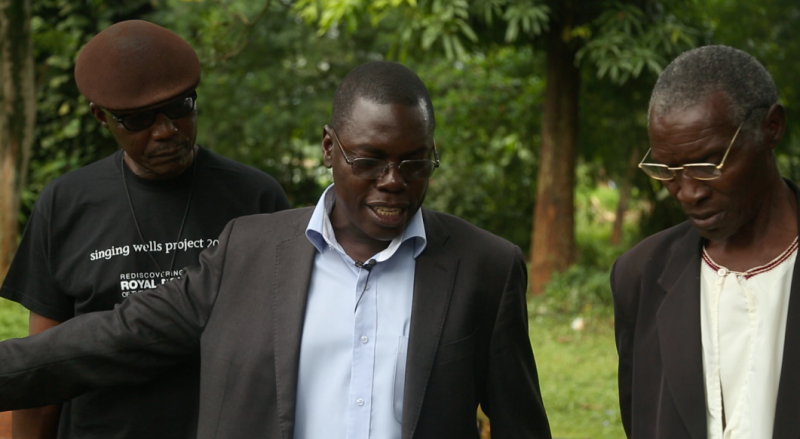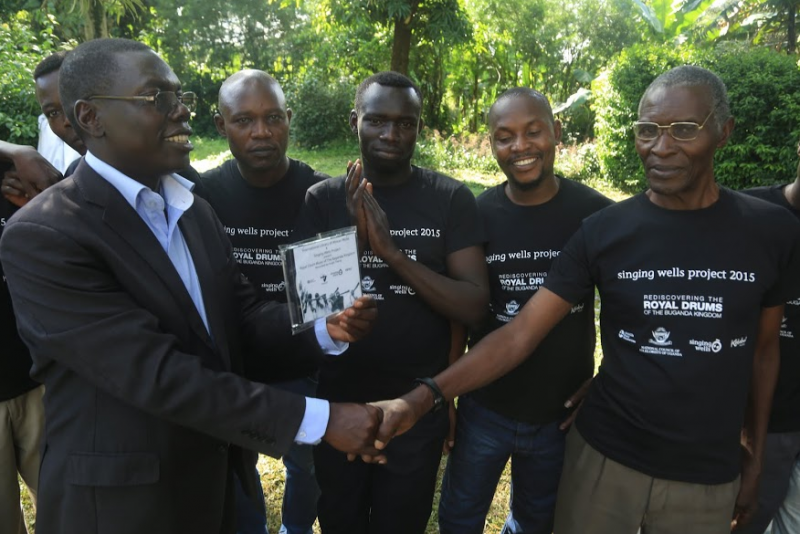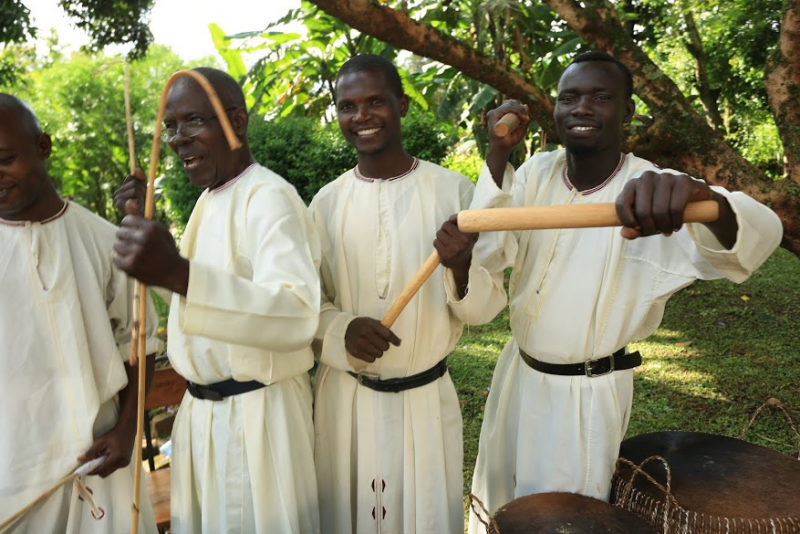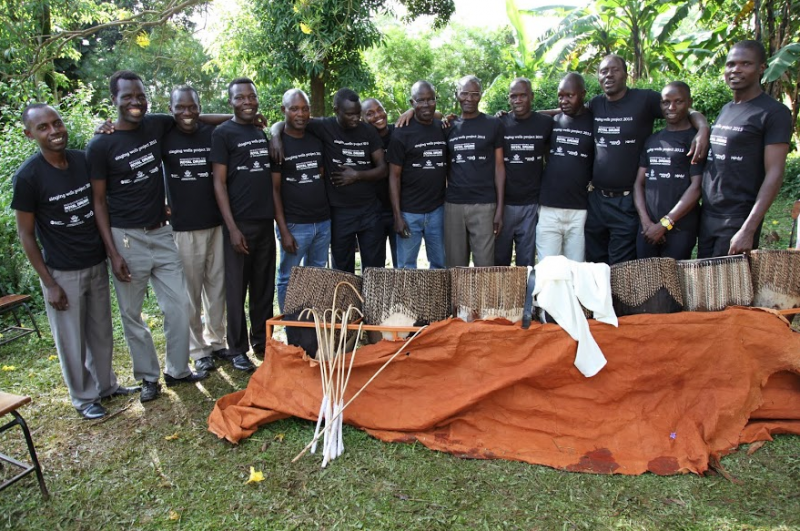November 30: Meeting the professor and his students
The Singing Wells team united in Nairobi on November 28th and flew together to Kampala on November 29th. We are: Tabu Osusa, Jimmy Allen, Steve Kivutia, Patrick Ondiek, Hunter Allen and Nick Abonyo. After a night at the Fairway Hotel, we met James Isabirye at his university, Kyambogo University, to record the Entenga.

Centre: James Isabirye
We have been working closely with James since 2013. During a conversation with James and Albert Ssempeke in 2013, we talked about reviving the Entenga, the Royal Drums of the Buganda Kingdom. Along with flutes, trumpets, strings and xylophones, the Entenga were part of a set of ‘royal instruments’ and much of the music was lost in 1966 when the palace of the Buganda Kingdom was attacked by government troops. The palace and instruments were destroyed, the King exiled, the royal musicians disbanded and much of the music forgotten.
In 2013, we considered any idea of reviving the Entenga to be very unlikely, because we thought all the drummers who had played in the palace before 1966 had died. But in 2015 James discovered the sixty-something Musisi, possibly the last surviving drummer. Musisi was just a teenager at the time of attack and barely survived the night of the attack itself (more on this here). James met him and realised that together they could begin to build the drums. Working closely with Albert and Shaban, a professional drummer who now leads the new band, they built a new set of Royal Drums, recruited a team of passionate drummers to learn how to play the drums, learned to tune the drums and ultimately learned to play new music. Over the course of their studies, the new drum students (most of whom are actually highly accomplished drummers and professors of music) starting calling Musisi ‘The Professor.’

Left: James, Right: Musisi
And that is why we found ourselves under beautiful trees on the campus, facing the 15 drums and six drummers of an Entenga ensemble. We used our time to record eight songs and interview Musisi, and survived a couple of heavy thunderstorms. In terms of interviews, we will write separate blogs on the drums themselves and Musisi’s time at the palace. In terms of the music, we recorded the following songs today:

The Drummers
In terms of the moment, let’s stress a few things:
- These drums are magnificent. They are actually 15 drums, 12 of which are tuned to the notes of a xylophone and thus we are hearing a full song – percussion, bass, rhythms and melodies across the six players.
- These drums were dead. We have some recordings from Hugh Tracy in the 1950’s (more on this later) and Peter Cooke also recorded a final performance in 1969. But the drummers all died. The drums were gone. We had old recordings, but no drummers.
- We were listening to lost songbooks. We were listening to the full drums together for the first time in almost 50 years. Musisi told us he never thought he’d hear the music again, and his only goal in life now is to teach the teachers so the drums will live. Albert Ssempeke couldn’t believe they were back. And the drummers loved it, telling us this is the most sophisticated, complicated, beautiful music they have ever played.
- Most of the drummers are teachers and are now committed to teaching this music to others. According to their leader, Shaban, “the music is back.” But they all emphasised to us that they are not interested in teaching the past, but rather they see mastery of these drums as key to any drummer’s future. As John Ssempeke (drummer and brother of Albert) noted, “if you can master these drums, you can master drumming. We learn the Entenga to shape the music of the future.”
And the rediscovery of the Entenga drums is what Singing Wells is all about. We live for moments like this. More, much more, tomorrow.

